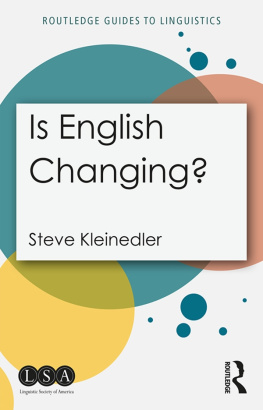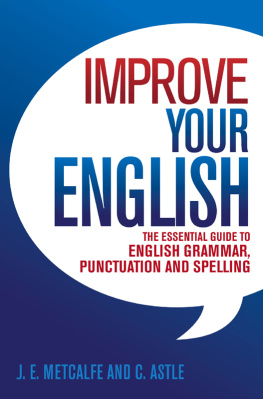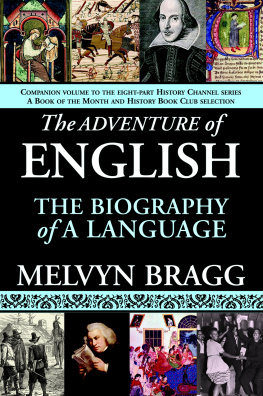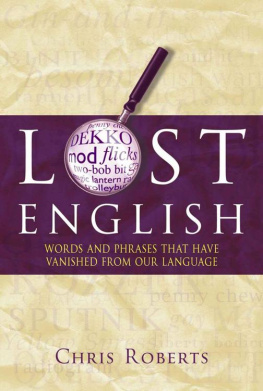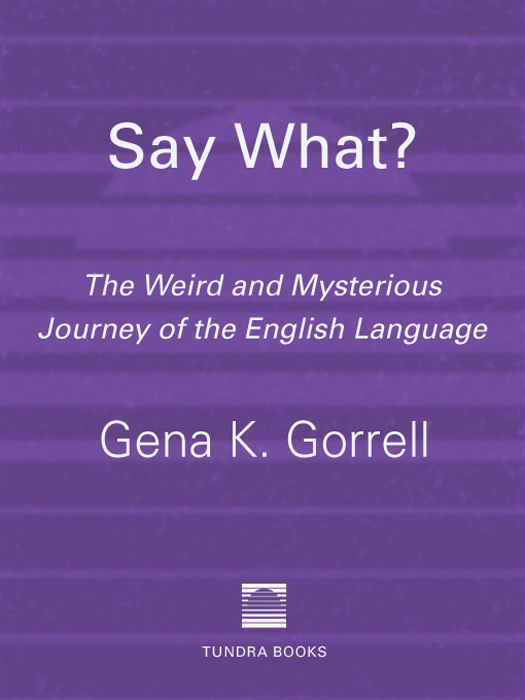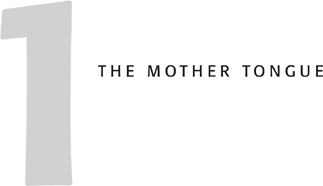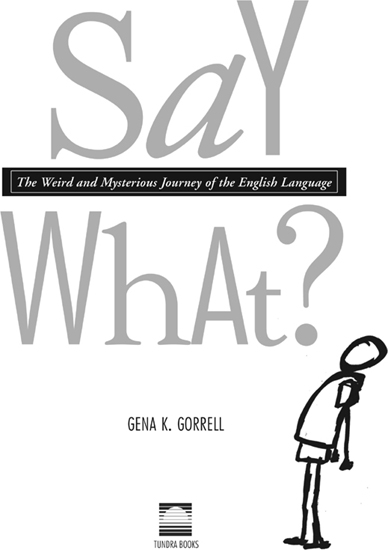
Text copyright 2009 by Gena K. Gorrell
Published in Canada by Tundra Books,
75 Sherbourne Street, Toronto, Ontario M5A 2P9
Published in the United States by Tundra Books of Northern New York,
P.O. Box 1030, Plattsburgh, New York 12901
Library of Congress Control Number: 2009928409
All rights reserved. The use of any part of this publication reproduced, transmitted in any form or by any means, electronic, mechanical, photocopying, recording, or otherwise, or stored in a retrieval system, without the prior written consent of the publisher - or, in case of photocopying or other reprographic copying, a licence from the Canadian Copyright Licensing Agency - is an infringement of the copyright law.
Library and Archives Canada Cataloguing in Publication
Gorrell, Gena K. (Gena Kinton), 1946
Say what? : the weird and mysterious journey of the English language / Gena K. Gorrell.
eISBN: 978-1-77049-079-6
1. English languageHistoryJuvenile literature. I. Title.
PE1075.G675 2009 j420.9 C2009-902917-0
We acknowledge the financial support of the Government of Canada through the Book Publishing Industry Development Program (BPIDP) and that of the Government of Ontario through the Ontario Media Development Corporations Ontario Book Initiative. We further acknowledge the support of the Canada Council for the Arts and the Ontario Arts Council for our publishing program.

v3.1
This book is dedicated to my father,
Jack Muir, who was always my best editor,
and who taught me from the beginning
that Well, you know what I mean is
just
not
good
enough.
Language is the memory of the human race.
W ILLIAM H ENRY S MITH
Contents
Introduction
THE PUZZLE OF ENGLISH
W here on earth did the English language come from? Over a million words, and such weird spellings! Arent there any rules? Some words are spelled the same but said differently (The wind made the flag wind around the pole). Others are spelled differently but pronounced the same (Did you bring enough stuff?) How did English get so complicated?
The answer is that English isnt just the speech of one nation; its the memory of thousands of years of history. It tracks the places people came from and the places they went to; the adventures they had; the friends and enemies they made; the battles they won and lost. It marks the days when legions of Roman soldiers stomped onto Englands shore the days when Viking warriors sailed their dragon boats across the sea to plunder British villages the day a king of England was felled by an arrow on the battlefield and a foreigner seized his throne. As English changed and grew, it became a jumble of sounds and words and rules from countless languages and lands. And its still changing, still growing, every day.
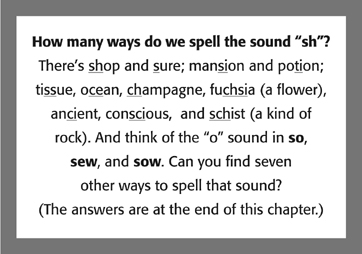
If you want an example, look at Tolkiens novel The Hobbit. When Bilbo Baggins first meets the wizard Gandalf, the hobbit exclaims:
Gandalf, Gandalf! Good gracious me! Not the fellow who used to tell such wonderful tales at parties, about dragons and goblins and giants and the rescue of princesses ?
That looks like plain English, doesnt it? But gracious and princess both come from Latin gratia, kindness, and princeps, leader. Dragon and giant are from Greek drakon and gigant. Fellow and wonderful come from the Norse spoken by those ancient Viking warriors. As for Gandalf, its Norse for wand-elf!
English has words from languages so old that we barely know they existed. It has words from prehistoric tribes, and from todays languages from Hindi, Arabic, and Chinese; from the Choctaws in North America, the Guarans in South America, and the Aboriginals in Australia. More than seventy percent of all English words were born someplace other than England. Spin a globe and put your finger down on almost any patch of land; English has words that come from there.
Thats why the language can be so confusing and inconsistent. Thats why, for every rule about English, theres a fistful of exceptions. And thats why this is the richest, most international, most versatile language in the world.

W here did language start in the first place? It must have been long before there were humans. Imagine primitive ape-creatures huddled together in a cave; theyd have to communicate somehow. Theyd want some way to say, Give that back, its mine! or Move over, youre standing on my foot! And the more they lived together, the more theyd need to say. Whered you find those blueberries? Chase that rabbit over here and Ill grab it. As they evolved into humans, and learned farming and other skills, their language would become more complicated: Ill trade you half my honey next week for one of those catfish today.
While early humans were developing languages, they were also migrating from place to place. Sometimes they were driven by changes in the weather, or by natural disasters like floods and forest fires. Sometimes they were moving away from hostile neighbors, or following the animals they hunted. For many reasons, groups of people were leaving one home territory and looking for another.
By comparing certain languages and tracing their roots, finding similar words that seem to come from the same ancient, mysterious source, scholars have concluded that in the far distant past maybe six or eight thousand years ago some people were speaking a language that has now been lost. They had no writing (that weve found) so we have no records, and we know very little about who they were, or where and how they lived. They seem to have had words for snow and wolf but not for ocean, so their homeland was probably cold and far from the sea likely somewhere in Central Europe. But thats about all we can say. That, and one other thing: for some reason, small bands of these people migrated in different directions. They carried their language across Europe and Asia and even up into Scandinavia.
Once their communities became separated, their ways of speaking slowly began to differ, creating a whole family of languages that we describe as Indo-European. One version, Celtic Indo-European, is the source of modern Welsh, and of the Gaelic spoken in Ireland and Scotland. Farther south, Greek Indo-European developed into ancient and then modern Greek. The Indo-Iranian form is the foundation of most languages of India, Pakistan, and Iran. Italic Indo-European gave rise to Latin, which gave rise to Italian, French, and Spanish. The Slavic version is the basis of Russian, Bulgarian, and Polish. Germanic Indo-European is the root of Dutch, most Scandinavian languages, German and Yiddish and English. And these are only a few examples. Altogether, the roots of the languages spoken by about half the people in todays world reach back to the Indo-European tongue of those unknown people so long ago.





